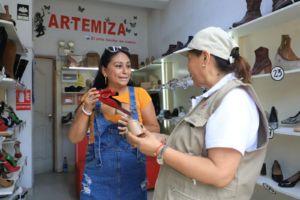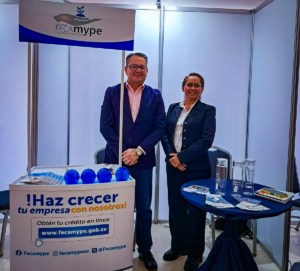In El Salvador, access to technology is advancing rapidly, but its adoption in business still presents major challenges. According to the study “Estado Actual de la MYPE 2023” of the Observatorio MYPE, although 76.4% of entrepreneurs already have phones with internet, 59.6% still prefer to make their transactions in cash. Only a small 6.6% of businesses operate exclusively with electronic means, which reveals a marked gap between access to and effective use of digital tools.

This gap is not so much a technical limitation as a cultural problem. Roxana Girón, coach at LID School, points out that there is “a cultural and trust barrier” to digital payments. Many entrepreneurs in the sector have a limited level of education – 59% only reached the ninth grade – which reduces their familiarity with modern financial tools and generates fear of the unknown.
Mistrust is one of the main reasons why entrepreneurs continue to opt for cash. The study reveals that 24.8% prefer to have cash in hand, 23% consider that their clients do not use digital methods and 15.2% are afraid of technology. This perception slows down the growth of the digital ecosystem in the MSE sector, despite the benefits that diversification of payment methods could bring.
Even so, there are examples that break with the norm. Claudia Vasquez, a salvadoran entrepreneur, taught herself to use digital payments and today accepts everything from bank transfers to Bitcoin. Thanks to her initiative, she was able to close significant sales, such as a US$500 contract that would not have been possible to handle with cash alone. Her case shows that, with training and support, digitalization is not only possible, but also profitable.

The key is to combine technological access with a strategy adapted to the realities of the business. Claudia learned to choose the most useful methods according to the client and the context, which allowed her to improve her revenue control and expand her business vision. However, experiences like hers are still exceptional, which makes it clear that the real challenge is cultural and formative.
To transform this reality, a national policy focused on digital education, regulatory simplification and continuous support is required. As Claudia says, “we must lose our fear, get trained and take risks”, because in an increasingly digital environment, trust and knowledge are the real capital for the growth of MSEs.







